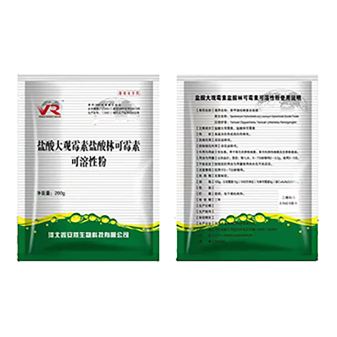- Afrikaans
- Albanian
- Amharic
- Arabic
- Armenian
- Azerbaijani
- Basque
- Belarusian
- Bengali
- Bosnian
- Bulgarian
- Catalan
- Cebuano
- Corsican
- Croatian
- Czech
- Danish
- Dutch
- English
- Esperanto
- Estonian
- Finnish
- French
- Frisian
- Galician
- Georgian
- German
- Greek
- Gujarati
- Haitian Creole
- hausa
- hawaiian
- Hebrew
- Hindi
- Miao
- Hungarian
- Icelandic
- igbo
- Indonesian
- irish
- Italian
- Japanese
- Javanese
- Kannada
- kazakh
- Khmer
- Rwandese
- Korean
- Kurdish
- Kyrgyz
- Lao
- Latin
- Latvian
- Lithuanian
- Luxembourgish
- Macedonian
- Malgashi
- Malay
- Malayalam
- Maltese
- Maori
- Marathi
- Mongolian
- Myanmar
- Nepali
- Norwegian
- Norwegian
- Occitan
- Pashto
- Persian
- Polish
- Portuguese
- Punjabi
- Romanian
- Russian
- Samoan
- Scottish Gaelic
- Serbian
- Sesotho
- Shona
- Sindhi
- Sinhala
- Slovak
- Slovenian
- Somali
- Spanish
- Sundanese
- Swahili
- Swedish
- Tagalog
- Tajik
- Tamil
- Tatar
- Telugu
- Thai
- Turkish
- Turkmen
- Ukrainian
- Urdu
- Uighur
- Uzbek
- Vietnamese
- Welsh
- Bantu
- Yiddish
- Yoruba
- Zulu
des . 29, 2024 17:30 Back to list
Effective Medications for Treating Upper Respiratory Infections in Adults and Children
Understanding Upper Respiratory Infections and Their Treatment
Upper respiratory infections (URIs) are common illnesses that affect millions of people worldwide each year. Characterized by symptoms such as a runny nose, sore throat, cough, and fatigue, these infections can be caused by various viruses and occasionally by bacteria. While most URIs are mild and resolve without the need for medication, understanding the best treatment options available can help alleviate symptoms and promote recovery.
What Causes Upper Respiratory Infections?
The vast majority of upper respiratory infections are viral, with common culprits including rhinoviruses, coronaviruses, and adenoviruses. Bacterial infections, though less common, can also contribute to URI symptoms. The spread of these infections typically occurs through respiratory droplets when an infected person coughs or sneezes, or through hand-to-mouth contact after touching contaminated surfaces.
Symptoms of Upper Respiratory Infections
Symptoms of URIs can vary significantly from person to person but generally include - Nasal congestion or runny nose - Sore or scratchy throat - Coughing - Sneezing - Fatigue - Mild headache - Fever (though often low-grade)
These symptoms can last anywhere from a few days to several weeks, depending on the severity of the infection and the individual's overall health.
Medication Options for Treatment
While antibiotics are effective against bacterial infections, they are not suitable for viral URIs. Therefore, the focus of treatment is often symptomatic relief. Here are some commonly used medications and remedies for managing upper respiratory infection symptoms
1. Over-the-Counter Decongestants Medications such as pseudoephedrine (Sudafed) can help relieve nasal congestion by shrinking swollen blood vessels in the nasal passages. However, they can cause side effects such as increased blood pressure and insomnia.
what is the best medication for upper respiratory infections

2. Antihistamines Drugs like diphenhydramine (Benadryl) and loratadine (Claritin) help reduce sneezing, runny nose, and itchy eyes. They are effective, especially when allergies may complicate the URI symptoms.
3. Cough Suppressants and Expectorants Dextromethorphan (found in Robitussin DM) can help suppress coughs, whereas guaifenesin (Mucinex) helps to thin mucus, making it easier to expel from the respiratory tract.
4. Pain Relievers and Fever Reducers Nonsteroidal anti-inflammatory drugs (NSAIDs) such as ibuprofen (Advil, Motrin) and acetaminophen (Tylenol) can help relieve sore throat pain and reduce fever.
5. Throat Lozenges and Sprays These can provide temporary relief for sore throats by numbing the area and providing moisture.
6. Hydration and Home Remedies Staying hydrated is crucial. Warm fluids, such as herbal teas or broths, can soothe the throat and help thin mucus. Humidifiers can keep the air moist, providing additional comfort.
When to Seek Medical Attention
While most URIs are self-limiting, some cases may require medical attention. If symptoms persist for more than 10 days, worsen significantly, or are accompanied by high fever, difficulty breathing, or chest pain, seeking prompt medical advice is essential. A healthcare professional can determine if there is a bacterial infection that may need antibiotics or if any other underlying conditions are present.
Conclusion
In summary, the management of upper respiratory infections often revolves around symptomatic relief. A combination of over-the-counter medications, rest, hydration, and home remedies can provide significant comfort and aid recovery. However, it is crucial to use medications appropriately and to consult a healthcare provider when necessary to ensure safe and effective treatment. Understanding these options empowers individuals to navigate URI symptoms effectively and encourages recovery.
-
Guide to Oxytetracycline Injection
NewsMar.27,2025
-
Guide to Colistin Sulphate
NewsMar.27,2025
-
Gentamicin Sulfate: Uses, Price, And Key Information
NewsMar.27,2025
-
Enrofloxacin Injection: Uses, Price, And Supplier Information
NewsMar.27,2025
-
Dexamethasone Sodium Phosphate Injection: Uses, Price, And Key Information
NewsMar.27,2025
-
Albendazole Tablet: Uses, Dosage, Cost, And Key Information
NewsMar.27,2025













